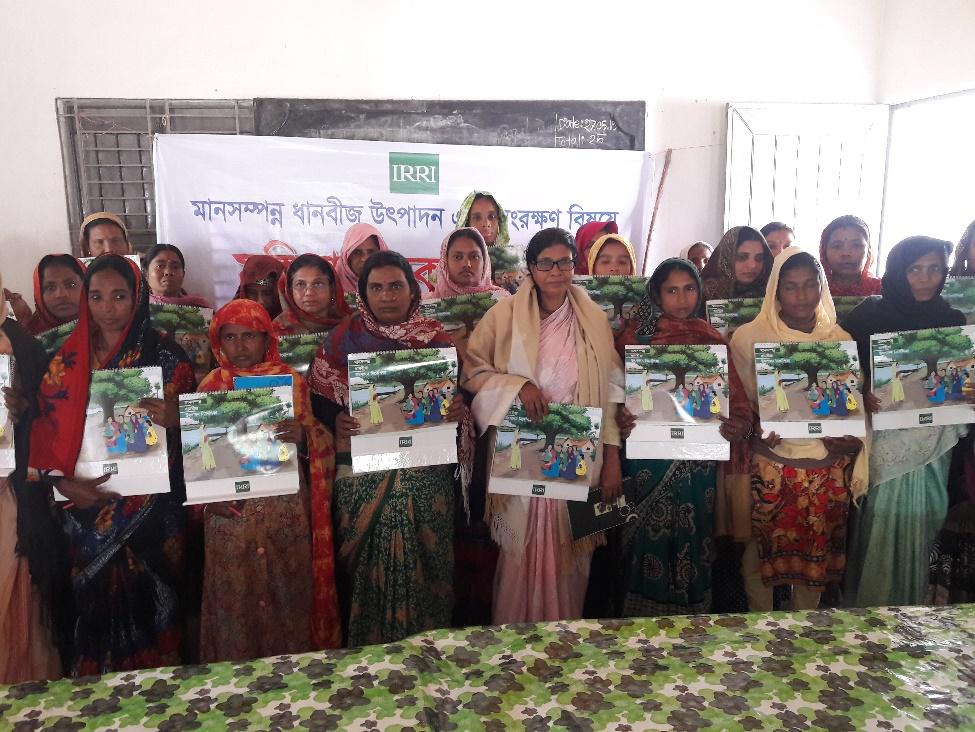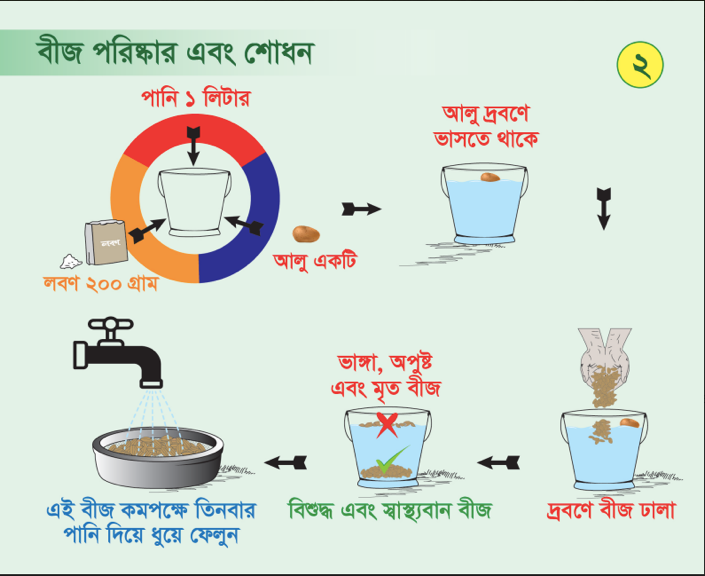Gender disparity manifests itself in manifold ways, one of those being constrained access to knowledge and skillsets by women. It is also one of the many reasons for their marginal social status. One possible way to address the issue is to train women in relevant subjects that positively impact their socio-economic activities, which in turn can pave the path for enhanced socio-economic status.
The agriculture sector in Bangladesh is highly dependent on women farmers, yet it goes unacknowledged. Women’s Empowerment in Agriculture Index (WEAI) for Bangladesh is 0.66 and the Genuine Progress Indicator (GPI) is 61%. It reflects the poor state of gender parity in the country and the agriculture sector in particular.
While many training programs have been organized for women farmers, there is no evaluation of the outcomes and usefulness. Given the low literacy rate among adult rural females, their effective participation is a big question. In such a scenario, well-planned training programs that use trainee appropriate training aids are quite critical. To spur gender equality and women empowerment in the agriculture sector, International Rice Research Institute (IRRI) has always come up with ground-breaking approaches. Rice is one of the predominant crops in Bangladesh. Improved seed quality has been a proven strategy in the geography for productivity enhancement. Thirty to sixty percent of farmers use seeds obtained from informal sources which lead to compromise in quality. Therefore, training women farmers to develop farmers’ seed systems is a two-pronged strategy.
An innovative initiative by IRRI in this direction is Quality Seed Production (QSP) training under the Accelerated Genetic Gain in Rice (AGGRi) Alliance Project. The training includes a flipchart manual that provides technical information on quality seed production and seed management through visuals. The pictorials are simple, clear and help overcome literacy barriers. The trainees not only understand the concept well but also retain the knowledge gained. To ascertain the benefits, IRRI evaluated the initiative. Between December 2019 and March 2020, the AGGRi team in Bangladesh conducted 30 training programs that covered 19 districts in the six divisions of Barisal, Dhaka, Khulna, Rajshahi, Rangpur and Sylhet.
A total of 900 women farmers participated in the day-long training events. The women trainees were organized and grouped by the networking partners of IRRI in Bangladesh. The criteria for grouping included: i) farmsize, scale of operation, cropping pattern and socio-economic condition; ii) experience in rice seed production, processing, storage and marketing; and iii) trained women with the ability to network and grow as agro-preneurs.
Apart from the training manual, other components that contributed to the success of the program were the appropriate selection of trainees, skilled trainers, relevant topics, practical sessions, and devising plans for farmer-to-farmer diffusion of the QSP practices learnt.

Women farmers trained on QSP in Bangladesh. Credit: IRRI
Perceptions of the Women Farmers
Face-to-face interactions and interviews and FGDs revealed positive sentiments in all locations. Alema Begum, Women Group Leader from Alamnagar, Rangpur shared her assessments.
“This kind of training is a first-hand experience for us (women farmers). The subject matter of this training is very relevant for us and we get to learn many effective methods of seed management. Flipcharts are very helpful for us as we tend to forget what we learn. The flipcharts will help us recall the learnings in future.” – Alema Begum
Few trainee farmers in the Northeast and Southwest regions suggested that the venue for training should be away from their homesteads so that they stay concentrated and focused instead of attending to household chores in between. Some even emphasized the need for detailed sessions on aspects of rice seed production (e.g., pest management). The trainees were quite vocal about the need to use simple and clear language during training for better comprehension. The trainees had gained a good understanding of processes like seedbed preparation, seed cleaning and treatment, germination tests, resource management, etc. Although they were aware or familiar with some of the best practices earlier, they now understand the importance of the practices and are confident about putting those to practice. They were assertive about the improvements in their knowledge and skill sets. Some of the trainees could differentiate the training from the previous ones. According to Rita Bromma, Women Group Leader from Babuganj, Barisal.
“Previous training programs didn’t result in the application of the learnings. We were mere participants and didn’t even remember what we had learnt. We need regular training in quality seed production techniques. We applied our recent learnings and benefitted as well.” – Rita Bromma
Such optimistic outcomes hint at the potential of women farmers to transform their lives through enablement. They are enthusiastic about the opportunities that come their way. In the process of empowering themselves, they can bring about much-awaited changes in the usage of quality seeds and seed management in paddy cultivation. With these positive findings, IRRI is planning further innovations and improvements in training programs, such as need-based/customized training arrangements and two-way communication between trainees and extension officers.
About the authors
- Muhammad Ashraful Habib, Senior Specialist, Seed System & Product Management, IRRI Bangladesh
- Swati Nayak, Scientist & South Asia Lead – Seed Systems & Product Management, IRRI Gobal
- Subhasmita Mohapatra, Consultant, IRRI India
- Saidul Islam, Senior Specialist, Seed System & Product Management, IRRI Bangladesh






